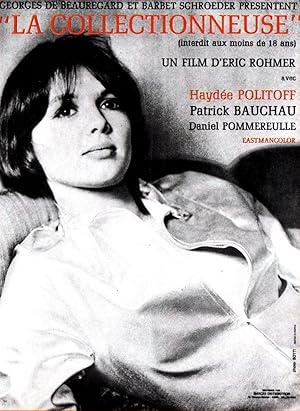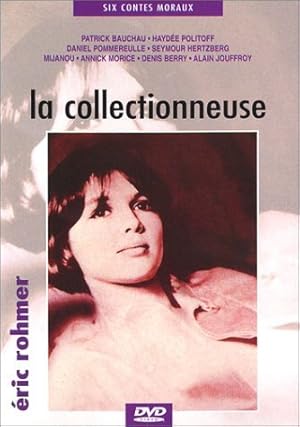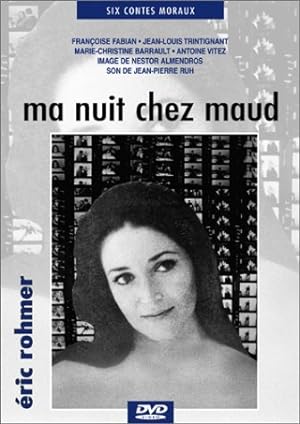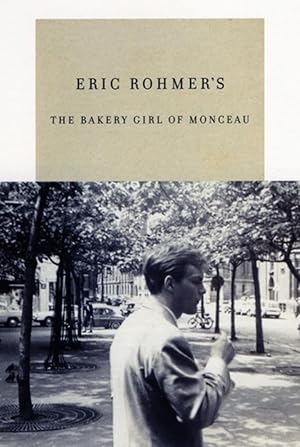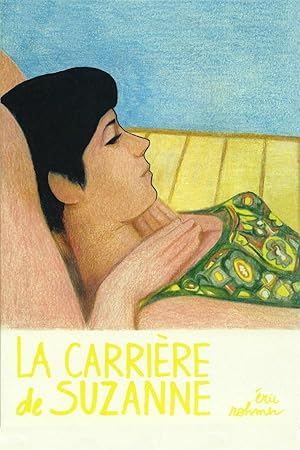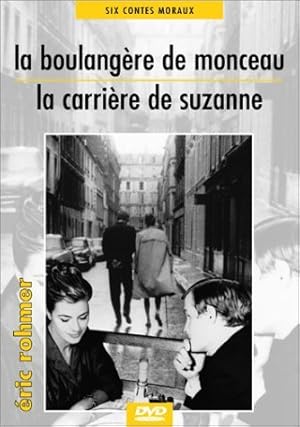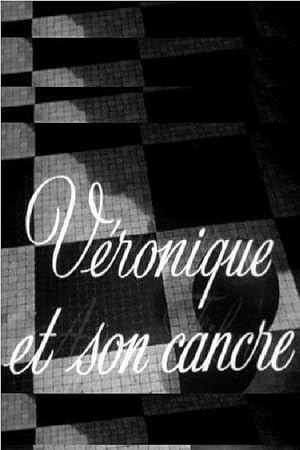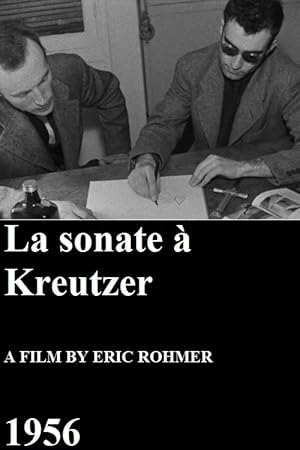Movies by Éric Rohmer
You are now browsing page 2, where we continue to showcase more remarkable films by Éric Rohmer. If you’ve already sampled some standout titles on previous pages, it’s the perfect time to discover even more noteworthy productions. Keep exploring and enjoy your cinematic adventure!
La Collectionneuse (1967)
0
A bombastic, womanizing art dealer and his painter friend go to a seventeenth-century villa on the Riviera for a relaxing summer getaway. But their idyll is disturbed by the presence of the bohemian Haydée, accused of being a “collector” of men.
A Modern Coed (1966)
0
Eric Rohmer directs this short documentary that narrates the presence of women in French universities as of the time of its release -- 1966. During the film's short run, the narrator continues to point out that during the advent of World War II, only 21,000 women attended college and made only a 30 % of the student body, a number that by the 1964-1965 school year had passed the 120,000 mark. Instead of opting to live according to what was expected of them, now they were joining the work force, trading in aprons for lab jackets and becoming professionals even after getting married.
On Pascal (1965)
0
An episode of the educational TV series "En profil dans le texte" directed by Rohmer, on the French philosopher Blaise Pascal, the subject of debate in Rohmer's film "My Night at Maud’s."
Six in Paris (1965)
0
Six vignettes set in different sections of Paris, by six directors. St. Germain des Pres (Douchet), Gare du Nord (Rouch), Rue St. Denis (Pollet), and Montparnasse et Levallois (Godard) are stories of love, flirtation and prostitution; Place d'Etoile (Rohmer) concerns a haberdasher and his umbrella; and La Muette (Chabrol), a bourgeois family and earplugs.
Changing Landscapes (1964)
0
A sophisticated and beautifully constructed account of landscape change in and around Paris in the early 1960s. The film raises complex issues about the meaning and experience of modern landscapes and the enigmatic characteristics of features such as canals, pylons and deserted factories. Rohmer also explores the role of landscape within different traditions of modern art and design and refers to specific architects, artists and engineers.
The Bakery Girl of Monceau (1963)
0
Early new wave effort from Rohmer, which was the first of his six moral tales. It concerns a young man who approaches a girl in the street, but after several days without seeing her again, he becomes involved with the girl in the local bakery. Eventually, he has to choose between them when he arranges dates with them on the same day.
Suzanne’s Career (1963)
0
In the second of Rohmer's moral tales, he examines the relationship between two friends and a girl who at first appears easily exploited. It is a complex tale of feelings and misconceptions, acted out within the head of the main character, as part of Rohmer's attempt to more easily simulate the mindscape quality of literature within a film.
Sign of the Lion (1962)
0
An American in Paris lives by sponging off his working friends, and throws a party using borrowed money when his rich American aunt dies, believing firmly in his horoscope.
Presentation, or Charlotte and Her Steak (1961)
0
Two young people, Walter and Charlotte, are walking through a small village in Switzerland a snowy winter day. Walter introduces Charlotte to Clara, hoping to make Charlotte jealous. After saying good-bye to Clara, Walter accompanies Charlotte into her house, although she doesn't want him to. Charlotte is hungry and cooks a steak. She asks Walter if he wants a piece of it. He says no, but she gives him a small piece anyway. He wants a kiss, and she says no. She starts to compare herself with Clara, who Walter agrees is more beautiful. In spite of this, Walter says he likes Charlotte much more, but she thinks he is lying. She notices that he
Véronique and Her Dunce (1959)
0
Véronique gives a mathematics lesson to a dunce who answers the prepared questions with disconcertingly sound answers.
The Kreutzer Sonata (1956)
0
Some time after marrying a sensual girl, Pozdnychev realizes the only link to his spouse is that of physical love. When a violinist with whom his wife plays regularly the “Sonata to Kreutzer” appears, the young woman blooms in a new passion. From then on, her husband is eaten away by jealousy.
